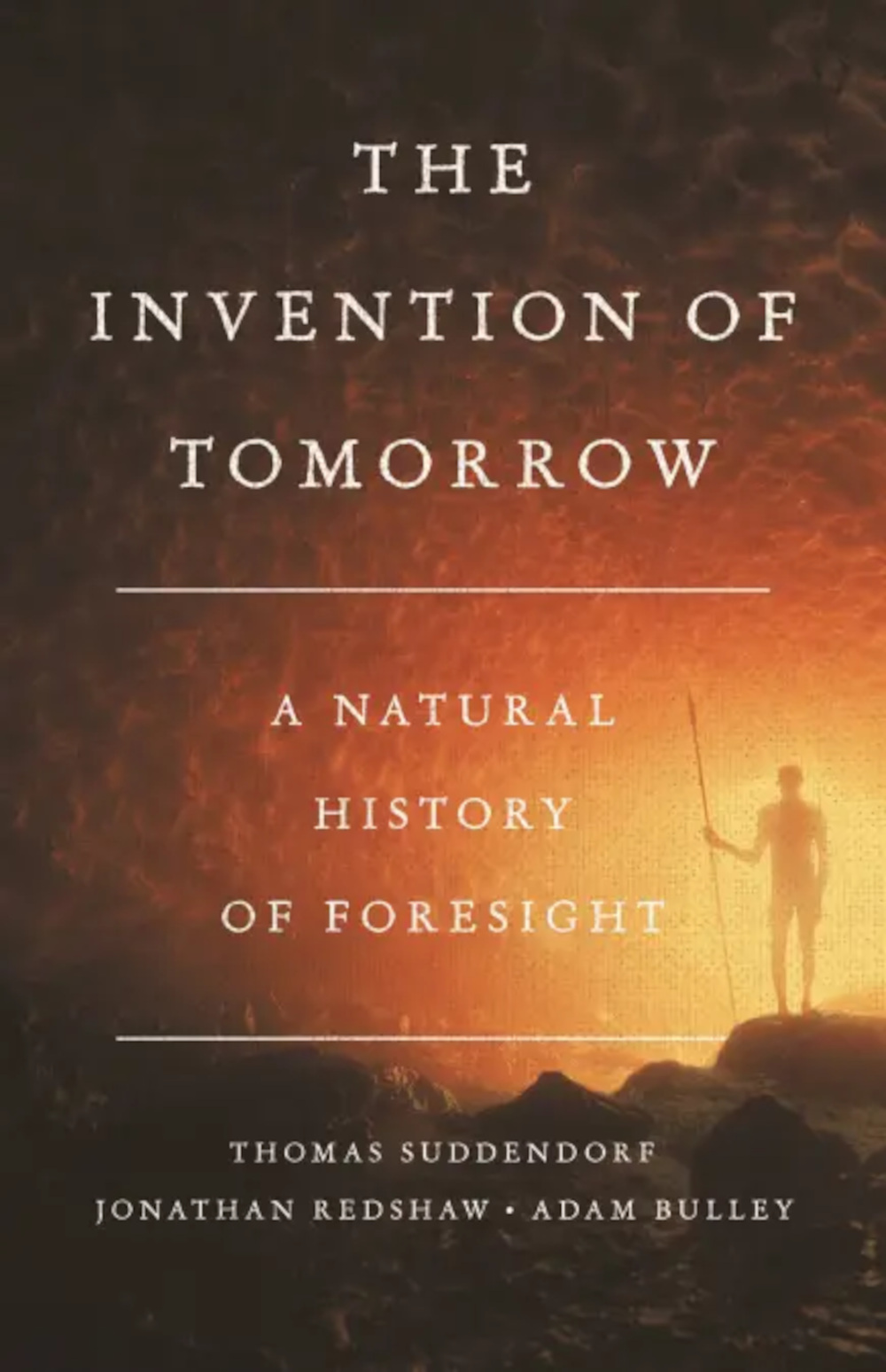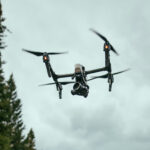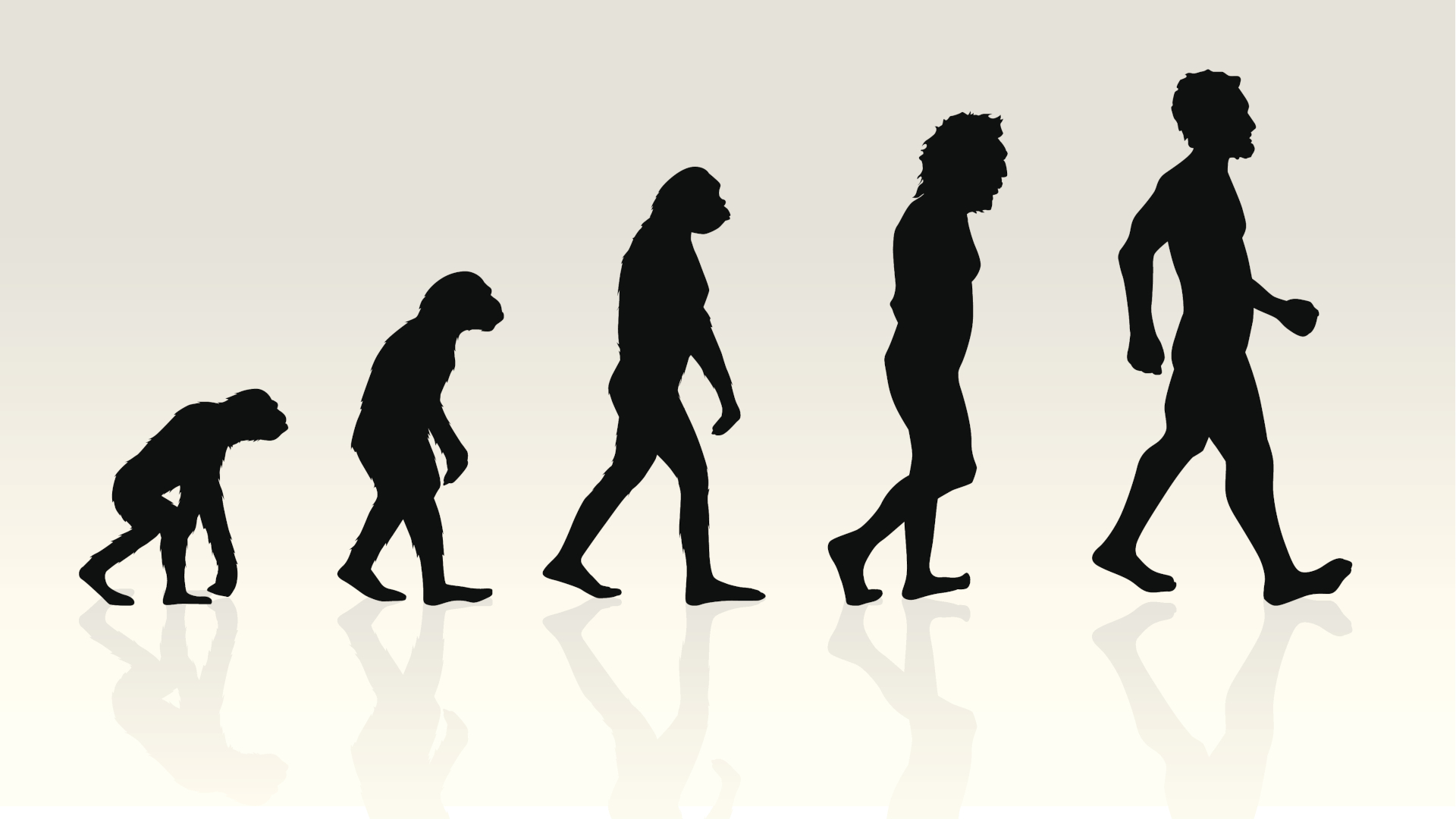The advice that Fleetwood Mac offered in one of their hit songs — “Don’t stop thinking about tomorrow / Don’t stop, it’ll soon be here” — is almost unnecessary; we think about tomorrow all the time. We spend so much time imagining what we might do tomorrow or next week or next year that we often take this ability for granted. In the playground of the imagination, many people envision the future just as readily as they recall the past.
Psychologists have a fancy name for this capacity to bounce around in time inside our heads: They call it “mental time travel.”
But here’s the thing: Most animals can’t do it (at least, not to the degree that we humans do it). Neither can babies and infants, and neither can people with certain cognitive impairments, like advanced Alzheimer’s disease, for example. But there’s evidence that most members of our lineage, at least since the time of Homo erectus, have been able to mentally journey through time. And according to a new book by cognitive scientists Thomas Suddendorf, Jonathan Redshaw, and Adam Bulley, mental time travel made all the difference. In “The Invention of Tomorrow: A Natural History of Foresight,” Suddendorf and his co-authors argue that the ability to envision future events while recalling past ones was a key development in the evolution of our species.

BOOK REVIEW — “The Invention of Tomorrow: A Natural History of Foresight,” by Thomas Suddendorf, Jonathan Tedshaw, and Adam Bulley (Basic Books, 304 pages).
The authors focus particularly on our ability to imagine the future but make it clear that imagining the future and recalling the past are intimately linked. In their own research, they found a connection between what young children were able to recall about yesterday and their ability to describe their plans for tomorrow. And other studies have shown that, as people age, the clarity of both their remembered past and their imagined future decline in parallel.
Interestingly, our memories are not always accurate — or at least, not as accurate as we imagine them to be. But as the authors see it, that inaccuracy often doesn’t matter. Memories don’t exist for the sake of nostalgia; they exist because they better equip us for what’s to come. Natural selection, they write, “does not care if your memory is accurate looking backward. What matters are the consequences of your memory for survival and reproduction moving forward. Memory is for the future.”
There is no shortage of books arguing that X — whatever X may be — gave our species “the edge.” In his 2009 book “Catching Fire,” anthropologist and primatologist Richard Wrangham argued that cooking food is what gave us that vital push to world domination; in multiple books, the late biologist E.O. Wilson highlighted the importance of social behavior and cooperation. Others have argued that tool use or language were the key development.
Suddendorf and his colleagues aren’t saying that those other suggestions are wrong; rather, they see foresight as enabling those other abilities, or at least going hand-in-hand with them. Consider, for example, the finely crafted hand-axes that Homo erectus used nearly two million years ago (crude as they may seem to our eyes). These implements required foresight to plan and execute — more foresight, the authors argue, than any other animal could muster. As well, these axes appear to have been carried over great distances, and used more than once.
They make a similar argument about foresight and the mastery of fire. And the argument linking foresight to language is perhaps even stronger: Language, they argue, let us communicate our clever ideas and plans to those around us. “These exchanges,” they write, “allow us to make better predictions and to coordinate our actions to shape the future increasingly to our own design.”
But the connection may be even more intimate. Linguists, they point out, have suggested that a key feature of human language is something called displacement: the ability “to refer to things that are remote in space and time.” This sounds, at least to my non-expert ear, like something very similar to mental time travel. And while it may be hard to pin down one single ability that led to human dominance over the planet’s other creatures, many of those skills are inconceivable without foresight. (The argument seems sound, but one is reminded that every layer in a pyramid rests on the one below: Language requires foresight — OK — but maybe foresight requires abstract thinking, and abstract thinking requires large brains with the right sort of connectivity … so which layer gets the credit for holding the pyramid up?)
Another central question the authors wrestle with is the extent to which foresight separates us from the rest of the animal kingdom. Roughly put: While other animals seem to live almost exclusively in the present, our minds wander freely along the timeline of existence. “So far,” they write, “we don’t have any evidence that other animals use their communication systems to go on shared walks down memory lane or collectively plot for a faraway future event.” They believe there’s “something distinct about the human capacity to construct mental scenarios” and share those imaginings with our fellow humans.
But are nonhuman animals truly stuck in the present? Some animals definitely perform actions that might appear to involve the future, the way squirrels bury nuts for the winter, for example. However, the authors point out, many of these behaviors are automatic. “Even a young squirrel that has never experienced a winter will collect and store provisions,” they write. “This simple fact tells us that the behavior is driven by instinct rather than insight.”
And yet, a number of recent studies appear to document some degree of foresight or planning in various species, and the authors discuss some of them in detail. While the authors acknowledge that some animals have long-term memories, and they learn from those memories, they nonetheless call for a degree of skepticism. An example is the work that Cambridge psychologist Nicola Clayton and her colleagues have been doing with scrub jays. These birds habitually hide, or cache, food for future consumption. But they can also adjust their search strategy depending on how much time has passed between the hiding and the eating.
For example, if scrub jays cache both mealworms and nuts, and have access to both storage sites just a few hours later, they’ll preferentially retrieve the worms, as that’s their favorite food. But if the caching took place five days ago, they’ll search for the nuts — seemingly conscious of the fact that the worms will have gone bad. (A 2007 paper by Clayton and her colleagues in Nature was titled “Planning for the future by western scrub jays.”)
While the finding got a lot of buzz, Suddendorf and his co-authors suggest that it doesn’t necessarily demonstrate foresight but rather could “reflect associative learning.” Because memories weaken over time, the jays “may learn to associate the strength of their memory for a food’s location with how good it tastes when retrieved.” This may explain the jays’ behavior “without a need to assume the birds are mentally revisiting when they cached the food.”
The reader may wonder if there’s some cherry-picking going on here, with Suddendorf and his colleagues emphasizing studies that spotlight human uniqueness, and downplaying those that highlights the capabilities of nonhuman animals. In the end, though, there seems to be little point in arguing about whether mental time travel is a uniquely human ability, or whether nonhuman animals can do it to some modest degree.
However small or large the disparity is, it surely exists. But the authors remind us of another fact that puts this apparent “gap” in perspective: The chasm that appears to separate humans from other animals would not seem so large if the other hominins that we once shared the planet with still existed. If, somewhere over the hills, Homo erectus was still ripping into the flesh of a downed deer with a hand-axe, or if Neanderthals were still telling stories around the campfire, we would be far more conscious of the fact that our abilities, impressive as they are, lie on a spectrum.











Comments are automatically closed one year after article publication. Archived comments are below.
Excellent review of an intriguing book.
I’m glad you mentioned – and more than in passing – the authors’ dismissal of nonhuman animal foresight. That anthropocentrism kind of puts me off the book. I am naive enough to believe that we (the science community at large) have moved past that blinkered belief. Well, it will probably take a lot longer than I thought! Humanity does love its exalted status.
One foresight anecdote that comes to mind: a group of captive chimps who liked to throw things at visitors. As they grew to expect visitors to line up every morning, they starting to prepare piles of debris so they wouldn’t have to scramble around for missiles in time – a case of foresight in the opinion of many (including me). There are other cases, and the best have no relation to “instinct,” as in scatter-hoarding jays or rodents. They suggest higher cognitive functioning. Scary thought???